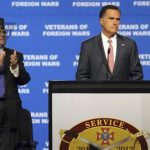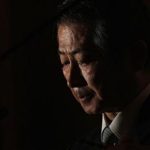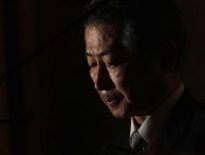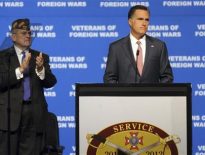(Reuters) – President Barack Obama pledged on Wednesday to work with leaders of all political stripes to “arrive at a consensus” on how to reduce gun violence across the United States after the Colorado shootings highlighted the issue in an election year.
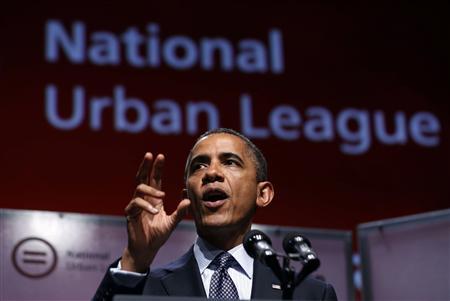
Closing out a multiday trip that began in Aurora, Colorado, where he met with families and victims of the movie theater massacre there, Obama told a mostly African-American audience that such tragedies are replayed on a smaller scale in cities throughout the country on a daily basis.
“Every day and a half the number of young people we lose to violence is about the same as the number of people we lost in that movie theater,” Obama said in remarks to the National Urban League, a group that works to promote civil rights and economic improvement for African-Americans.
“I’m going to continue to work with members of both parties and with religious groups and with civic organizations to arrive at a consensus around violence reduction.”
Discussing or even touching on the issue of gun control during an election year is risky, and Obama has been careful to avoid making proposals that could offend gun owners and rally his Republican opponents.
The president made a point of emphasizing his support for the U.S. Constitution’s Second Amendment, which covers the right to bear arms.
“We recognize the traditions of gun ownership that passed on from generation to generation, that hunting and shooting are part of a cherished national heritage,” Obama said.
“But I also believe that a lot of gun owners would agree that AK-47s belong in the hands of soldiers, not in the hands of criminals. That they belong on the battlefield of war, not on the streets of our cities.”
Obama did not make any new proposals on gun control in his remarks, though he said background checks for people seeking to buy firearms were more thorough since he took office.
Republican Mitt Romney, Obama’s opponent in the November 6 election, said earlier this week that additional laws would not have stopped the massacre in Colorado. The former governor of Massachusetts has backed gun control measures in the past.
POLITICAL APPETITE
Twelve people were killed and 58 wounded after a shooter opened fire at a screening of the latest Batman movie in the Denver suburb of Aurora last week.
That was not the first major massacre to happen while Obama was in office, nor was it the first event to prompt a discussion about the issue of guns in America. The assassination attempt on then-congresswoman Gabrielle Giffords in January 2011, in which six people were killed and 14 wounded, also sparked a debate over how to reduce violence.
Obama noted that the political appetite to tackle the issue was low and that initiatives to address it were often stymied.
“Too often those efforts are defeated by politics and by lobbying and eventually by the pull of our collective attention elsewhere,” he said.
“Other steps to reduce violence have been met with opposition in Congress. This has been true for some time, particularly when it touches on the issue of guns.”
The president has little political incentive to take on the issue of guns more directly. He is trying to shore up support among white, working-class men in political battleground states such as Virginia, where a robust message on gun control would not be likely to help him politically.
His message was well received by the mostly African-American audience in New Orleans, however, and Obama’s visit was meant to court that group ahead of the election, too.
The National Urban League released a report recently that said although blacks voted overwhelmingly for Obama in 2008, if the number of African-American voters drops even 5 percentage points this year, it could tip the outcome in some vital states.
Coinciding with his speech, the White House said Obama will sign an executive order on Thursday aimed at helping prepare African-Americans better for high school graduation and college.
The executive order will create a presidential advisory committee and a federal inter-agency working group to help the initiative succeed, the White House said.
(Writing by Jeff Mason; Editing by Lisa Shumaker)


